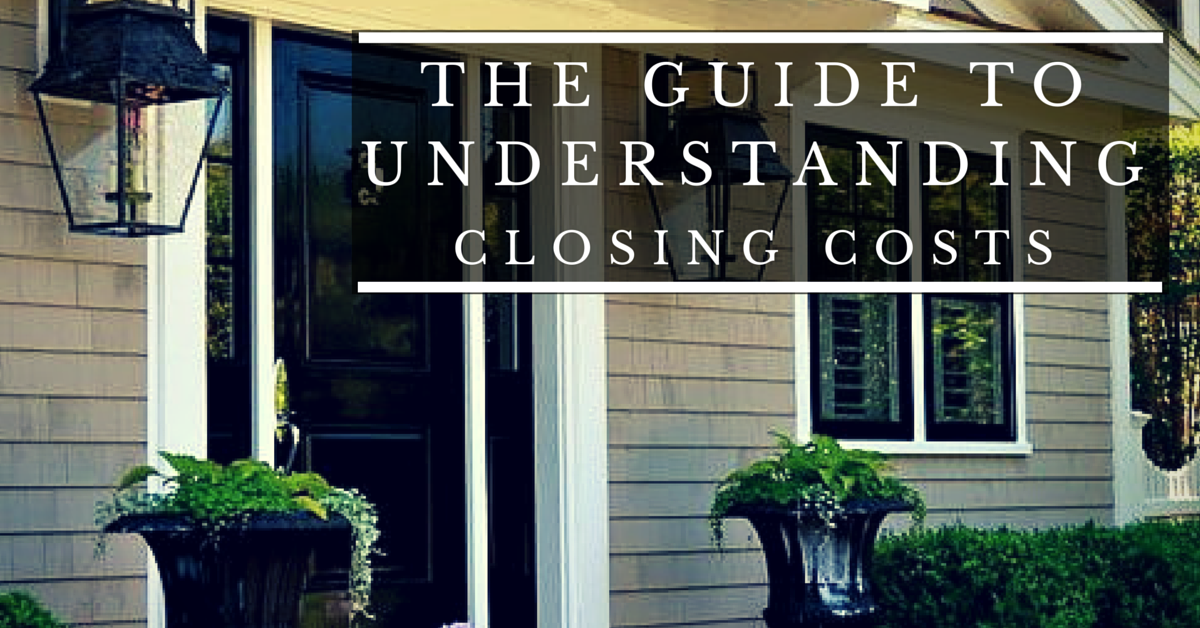
Closing costs can seem like such an overwhelming component of your mortgage, but if you understand them and know how to control them, you will have a better understanding of the mortgage process. Unfortunately, you have to pay to close on your loan. Just as you pay to purchase a gallon of milk from the store, you have to pay for the products that make it possible for you to get approved for a loan. Some of the most common closing costs include:
- Credit report fee
- Underwriting fee
- Processing fee
- Title search costs
- Title insurance
- Recording with the county fees
- Discount points (to bring your interest rate down)
- Origination fees
- Appraisal fees
These are just a sampling of the fees a majority of the lender’s charge. There are numerous others as each lender can come up with their own fees that they wish to charge. Today, however, lenders that plan to sell their mortgages on the secondary market, must abide by the Qualifying Mortgage Rules, which limits the amount that any bank can charge on a loan. In general, your fees cannot exceed 3 percent of the loan amount in order to be a Qualified Mortgage. If the lender chooses to charge more and not have a QM, then they are required to keep the loans on their own books and not sell it in the secondary market. Because a majority of the fees have to be the same across the board, there is not a lot of negotiating room to be had, but there is still some wiggle room for you to figure out how to afford those fees.
Lender Fees
The fees charged by the lender itself are often non-negotiable. These are the fees they charge across the board to every borrower. Because these fees are non-negotiable, it makes sense to shop around. You will likely find one lender near you that charges $2,000 in fees and yet another that charges $1,500 or even less. Every lender can charge whatever it is they decide they need to charge as long as it is under the allotted amount under the QM rules.
Third Party Fees
Certain third party fees are negotiable, although many borrowers do not realize it. One of the largest third party fees you will pay and the one that is definitely negotiable is the title insurance and title search. Your lender will likely want to use a specific title company and will ask you to use them, but if the fees are much higher than at other title companies in the area, you can negotiate to use another. In some areas, the difference in the fees can be as much as 5 percent of the loan amount, which when you are talking about a $200,000 loan or even higher, that can be a significant amount of money. One closing fee charged by a third party is not negotiable, however, and that is the appraisal fee. Every lender has one or two appraisers that they use and you do not have a say about it. These appraisers do not have a special interest in the property and will give a fair value for the home, protecting the lender in the event that the home is not worth as much as the sales price. The standard price for appraisals ranges between $250 and $350 depending on where you live.
How to Pay for Closing Costs
There are several ways you can pay for your closing costs. The most common way is to pay for them at the closing. The problem is that these costs can really add up, making it difficult to afford them at the closing. There are several ways around this:
- Let the lender pay the closing costs – In exchange for paying your closing costs, the lender will give you a higher interest rate. That higher interest rate pays the lender back the amount he covered for you for the closing costs, plus the interest he would have made on your loan for providing you with the money.
- Let the seller pay the closing costs – Some loan programs allow the seller to pay a portion of your closing costs. For example, on an FHA loan, the seller can provide up to 6 percent of the sales price toward your closing costs and conventional loans typically allow seller concessions of up to 3 percent of the sales price.
- Roll the closing costs into your loan – Some loan programs, including the FHA loan, allow you to roll the closing costs into your loan. Sometimes this is a problem if the sales price and the value of the home are close to one another, not leaving a lot of leeway to add closing costs, which increases your loan amount and your loan-to-value ratio.
Make sure you Understand the Closing Costs
The most important thing you can do is make sure you understand the closing costs. When you apply for a loan, the lender is required to provide you with a Good Faith Estimate which details all of the closing costs for you. This gives you plenty of time to ask questions, negotiate, and figure out how you are going to handle the payment of the closing costs. At the closing, you will receive more closing documents which document exactly what you are paying and how you are paying them so that you can reassure yourself that you are paying the closing costs as agreed.
If you have any discrepancies or do not understand your closing costs, make sure to ask the lender directly. Before you commit to any loan program, it is always a good idea to shop around as well as many lenders offer different programs and different types of fees. Shopping around could save you thousands of dollars in some cases, so it is well worth the effort.
